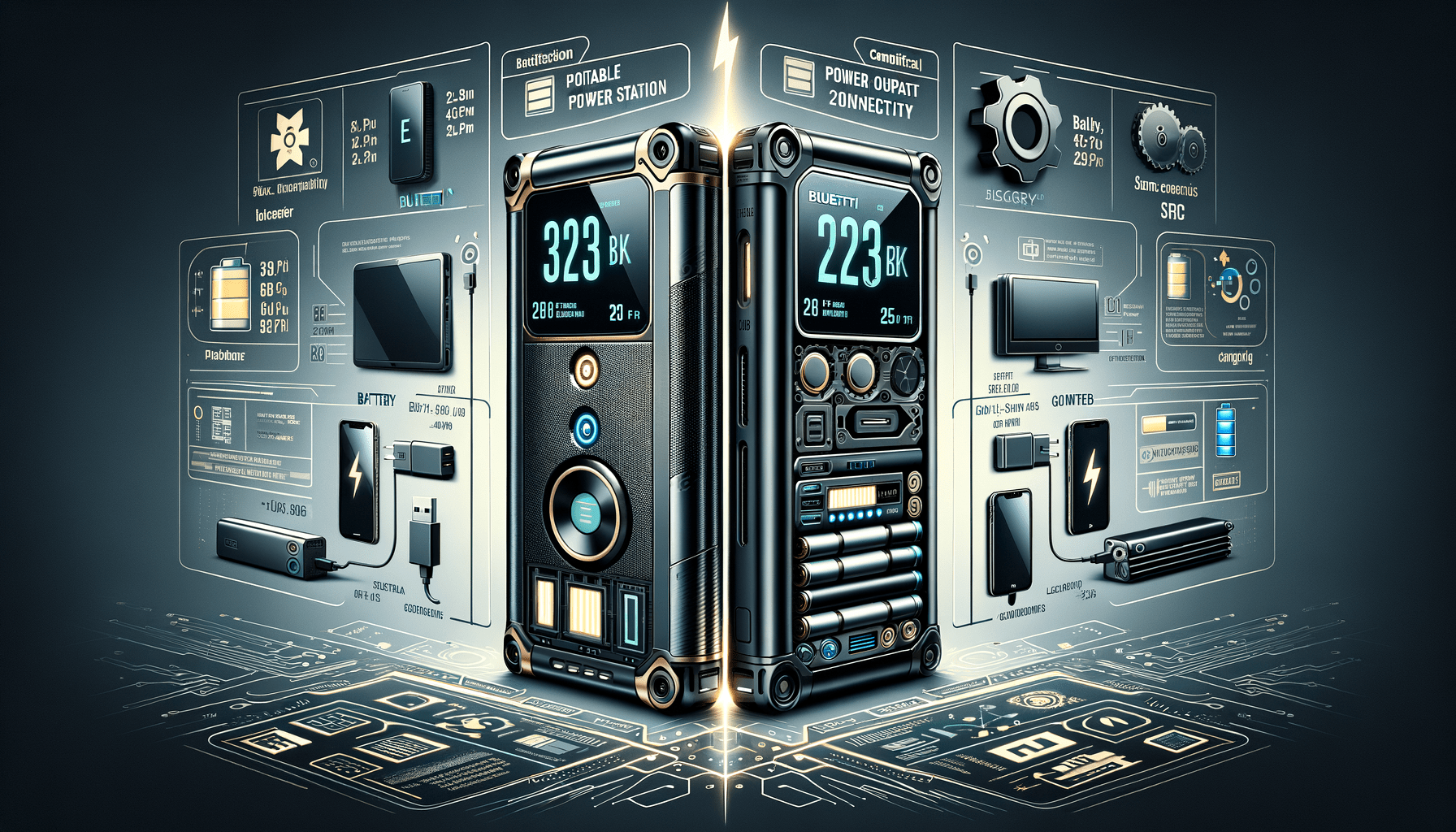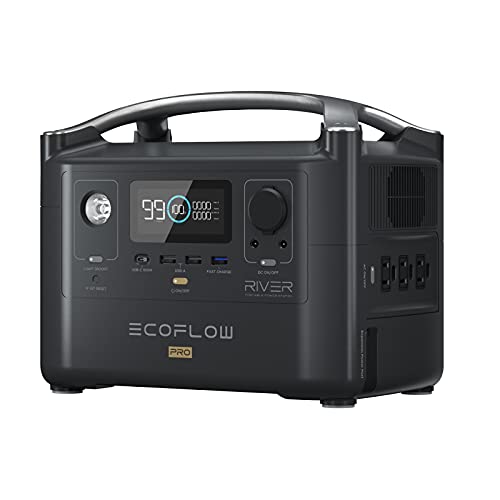In an age where portability and power go hand-in-hand, finding the right portable power station can be akin to finding a trusted travel companion. Whether you’re in the great outdoors, preparing for emergencies, or just ensuring you’re never without power, a reliable power station is a must-have. Today, we’re pitting two popular options head-to-head: the Renogy 1000 and the EcoFlow River Pro. Both are designed for versatility and convenience but let’s dive into the specifics to see how they stack up against each other.
Design and Build Quality
The Renogy 1000 boasts a robust SGCC steel construction, known for its impact resistance and durability. Along with two fans and an exclusive cooling system, it is designed to withstand tough environments and keep performance at its peak. On the other hand, the EcoFlow River Pro offers a compact and sleek design made with portability in mind, featuring a sturdy build that ensures it can handle the dings and bangs of travel.
Battery and Charging Technology
A power station is only as good as its battery life and recharge capability. The Renogy 1000 features an EV-grade lithium iron phosphate battery with a high-capacity storage of 998Wh. It recharges swiftly thanks to its iTurbo technology, achieving 80% charge in about 1 hour. The EcoFlow River Pro isn’t too far behind with a lithium-ion battery sitting at 720Wh, capable of an 80% charge in just 1 hour with X-Stream Fast Charging technology.
Power Output and Capabilities
When it comes to power output, the Renogy 1000 provides six Pure Sine Wave AC outlets with a rated output of 1500W and can juggle appliances of up to 3000W using its iBoost mode, offering 2100W total power output. The EcoFlow River Pro, while rated at 600W, can manage surges up to 1200W and has an X-Boost technology that allows it to operate devices up to 1800W.
Portability and Use Cases
Portability is key for any power station. The Renogy 1000 is heavier at 41 lbs, but its dual purpose as an indoor and outdoor power solution justifies the heft. It’s ideal for outdoor living and camping as well as home backup. The EcoFlow River Pro is lighter at 16.8 lbs and provides versatile power options in a more portable format — great for adventurers who are constantly on the move.
Comprehensive Comparison Table
| Feature | Renogy 1000 | EcoFlow River Pro |
|---|---|---|
| Material / Build Quality | SGCC steel, Two fans cooling system | Robust, compact design |
| Battery Capacity | 998 Wh | 720 Wh |
| Recharge Time (0-80%) | 1 hour | 1 hour |
| Cycle Life | 3000 cycles | 800+ cycles |
| AC Output | 6 outlets, 1500W rated, 3000W with iBoost | 3 outlets, 600W rated, 1200W surge |
| Total Power Output | 2100W | 600W, up to 1800W with X-Boost |
| Expandable Capacity | Yes, up to 1997Wh with parallel kit | Yes, up to 1440Wh with extra battery |
| Solar Charging | Yes, with Renogy E.FLEX 220W | Yes, up to 200W with solar panels |
| Standby Power Supply | Yes | Yes, UPS functionality |
| Weight | 41.0 lb | 16.8 lb |
| Dimensions | 18.27 x 10.79 x 11.57 inch | 11.4 x 7.1 x 9.3in |
| Price Point | Varies | Varies |
Solar Charging and Efficiency
Both power stations are capable of harnessing solar energy, a must-have for the eco-conscious traveler. The Renogy 1000 features an integrated MPPT algorithm to optimize solar energy generation, while the EcoFlow River Pro supports up to two 110 W solar panels. Solar charging capabilities ensure that you can keep your gear powered even when off the grid.
Conclusion
Both the Renogy 1000 and the EcoFlow River Pro offer distinct advantages. Your choice depends on what you value more: the Renogy’s superior power capability and durability, or the EcoFlow’s portability and quick charge times. Consider your needs and choose the one that best aligns with your lifestyle. Be it for camping trips, emergency preparedness, or simply as a power backup, both promise to be reliable power partners.




Leave a Reply